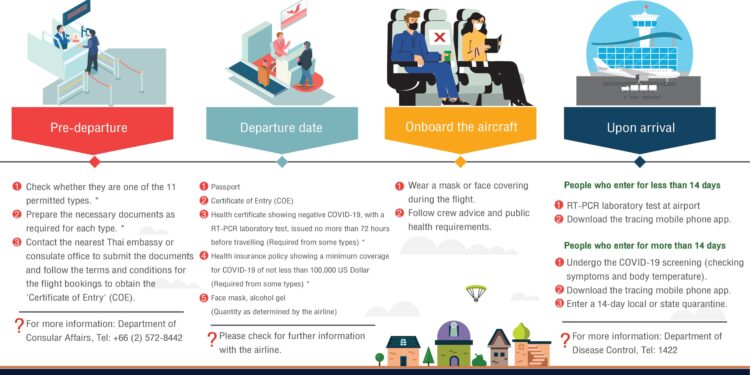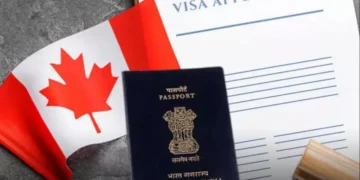When applying for a visa to certain countries, applicants may be required to submit specific health certifications as part of the application process. These health certifications are typically issued by licensed medical professionals or government-approved health agencies. These certifications verify that the applicant is free from certain infectious diseases or medical conditions that could pose a risk to public health in the destination country. Health certifications often include results from medical tests for conditions such as tuberculosis (TB), HIV/AIDS, or other contagious diseases. In many cases, countries require applicants to undergo a physical examination to ensure they meet the health standards set by the destination country. For example, some countries might ask for a negative result from a tuberculosis test or proof of vaccination against specific diseases such as yellow fever, polio, or cholera. The need for such certifications may vary depending on the applicant’s travel history, country of origin, and the country they are visiting. VISA HEALTH REQUIREMENTS It is important to check the specific health requirements of the country you plan to visit, as some nations impose stringent health certification policies to prevent the spread of infectious diseases. The process of obtaining these health certifications can be time-consuming, so it is recommended to start early in your visa application process.
Vaccinations for Visa Applicants
Vaccination requirements are a common part of the visa health requirements for many countries, especially for those traveling from regions where certain diseases are prevalent. Some countries require proof of vaccination before granting a visa, while others may allow travelers to get vaccinated upon arrival. One of the most commonly required vaccinations is the yellow fever vaccination, which is mandated by countries in tropical regions, such as parts of Africa, South America, and Southeast Asia. Travelers coming from regions where yellow fever is endemic must provide proof of vaccination in the form of an International Certificate of Vaccination or Prophylaxis (ICVP). Other vaccinations that might be required include polio, hepatitis A and B, typhoid, and meningitis, depending on the destination country and its health policies. Some countries may also recommend vaccines for travelers, even if they are not required for visa purposes. For example, the influenza vaccine is often advised for travelers during flu season, and malaria prevention may be recommended for those visiting regions with high malaria risk. It is crucial to check vaccination requirements well in advance of your trip, as some vaccines may need to be administered weeks before travel.
Health Insurance Requirements for Visa Applications
Health insurance is another critical component of visa health requirements, particularly for long-term stays or when applying for visas to countries with strict health regulations. Many countries require travelers to have valid health insurance coverage that will cover any medical expenses incurred while staying in the country. This requirement ensures that visitors will not burden the country’s healthcare system in case of illness or emergency.
Health insurance requirements vary by country. Some countries require proof of insurance as part of the visa application process, while others may ask for it upon arrival. For example, Schengen Area countries often require travelers to show proof of travel health insurance that covers medical expenses and emergencies during their stay. In some cases, the insurance policy must meet specific criteria, such as coverage for medical evacuation, emergency medical treatment, and repatriation.
When applying for a visa to a country with health insurance requirements, applicants must ensure their insurance policy meets the necessary criteria. Travelers should also check whether their home country’s insurance policy provides adequate coverage for their travels or if they need to purchase additional international health insurance.
Quarantine and Health Screening Regulations
Some countries have quarantine and health screening regulations as part of their visa health requirements, especially in response to global health concerns such as pandemics. For instance, during the COVID-19 pandemic, many countries implemented mandatory quarantine and health screenings for travelers entering the country. These regulations might include submitting proof of a negative COVID-19 test result before departure, undergoing health screenings upon arrival, or staying in quarantine for a specified period. Even in the absence of a pandemic, some countries may have quarantine or health screening requirements for travelers from regions where certain diseases are endemic. For example, travelers arriving from countries with outbreaks of diseases like Ebola or Zika may be subjected to health screenings or quarantined to prevent the spread of these diseases. Some countries also require health checks for certain diseases, such as tuberculosis, especially for individuals applying for long-term visas or residence permits. WHY EVISA OVER ORDINARY VISA Travelers should stay updated on quarantine and health screening regulations for their destination country. These regulations can change quickly due to emerging health threats, so it is important to check the latest information from the country’s health authorities or embassy.
Medical Check-ups for Visa Applicants
In addition to vaccination requirements and health certifications, some visa applications may require medical check-ups for certain visa categories, particularly for work or long-term stays. This is often the case for applicants seeking to work in healthcare, teaching, or other sectors where physical or mental health is crucial.
Countries like Australia, Canada, and the United States may require applicants to undergo medical examinations as part of the visa application process. These exams typically include a physical examination, tests for infectious diseases, and a review of the applicant’s medical history. The aim of these medical check-ups is to ensure that applicants are in good health and will not pose a risk to public health in the destination country. Medical exams for visa applicants are usually conducted by doctors approved by the relevant country’s immigration or health authorities. Depending on the visa type, medical check-ups may be required for applicants applying for work permits, student visas, or long-term residence. The specific requirements vary by country and visa category, so it is important to verify the necessary steps with the embassy or consulate before beginning the application process.
Conclusion
Visa health requirements are an essential aspect of the visa application process. They help ensure that travelers do not bring harmful infectious diseases into a country and that they have the necessary health protections during their stay. Health certifications, vaccinations, health insurance, quarantine regulations, and medical check-ups are common components of these requirements. It is important to stay informed about the health requirements for your destination country and begin your visa application process early to ensure all health-related aspects are properly addressed. By meeting these health requirements, you can ensure a smooth visa application process and a safe and healthy trip.















